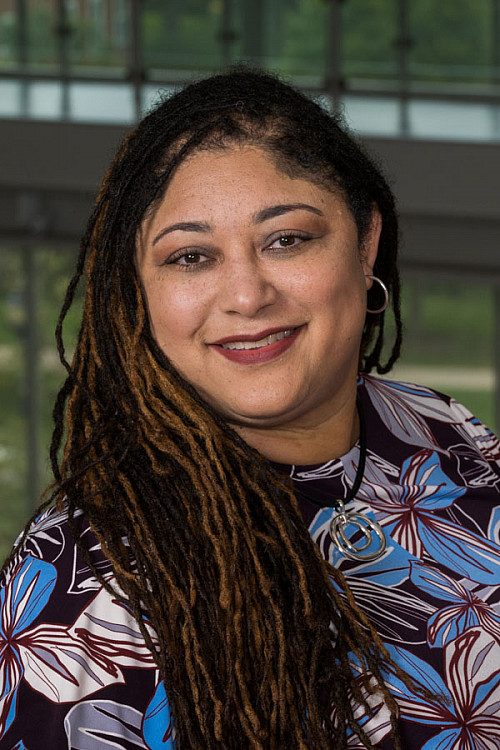Cultivating classrooms where respect, discomfort, and shared risk-taking are the norm
Newly tenured faculty member Sonya Maria Johnson builds her students’ confidence and essential life skills by challenging them to grapple with complex societal histories and contemporary realities.

Johnson recognizes that students may experience feelings of anger, sadness, and distress after class readings and discussions, all complicated by the students’ differing social identities.
The intent, however, is to inspire and empower her students to become more empathetic and powerful learners who meet their discomfort with curiosity.
The approach works.
“Dr. Johnson is unapologetic about confronting students with difficult topics. But the care and support she shows us not only makes the material less intimidating, but compels us to dig in further to learn more,” says one student.
Johnson explains why it’s important. “I have found that instilling respect as an organizing principle for guiding class interactions allows students to begin to trust themselves as competent learners. An atmosphere of respect…encourages students to engage with the material and their peers confidently while taking important risks in their learning.”
Her students have learned to feel safe with her, and with one another. Risk taking is not only critical for them to engage with the subject matter, but to help them collaborate to imagine solutions to the problems they study.
Johnson conceives of her classrooms as learning laboratories. What do students think about the authors’ perspectives? How would they solve the problems the texts identify?
Johnson’s classrooms are porous: students learn by visiting the college’s library and museums, helping students understand the importance of community building and resource identification so critical to their success post-graduation.
“The visits helped us realize that there are multiple ways to learn and that learning styles can differ,” one students notes, while a graduate reports that as a young person embarking on a professional life, they still use what they, “learned from her in my daily life, both the course material and her attitudes towards learning and life.”
Dr. Johnson’s emphasis on hands on-learning is rewarding for the students, because, as she says, “Ultimately, my overarching goal is to help students become their own best teachers.”


